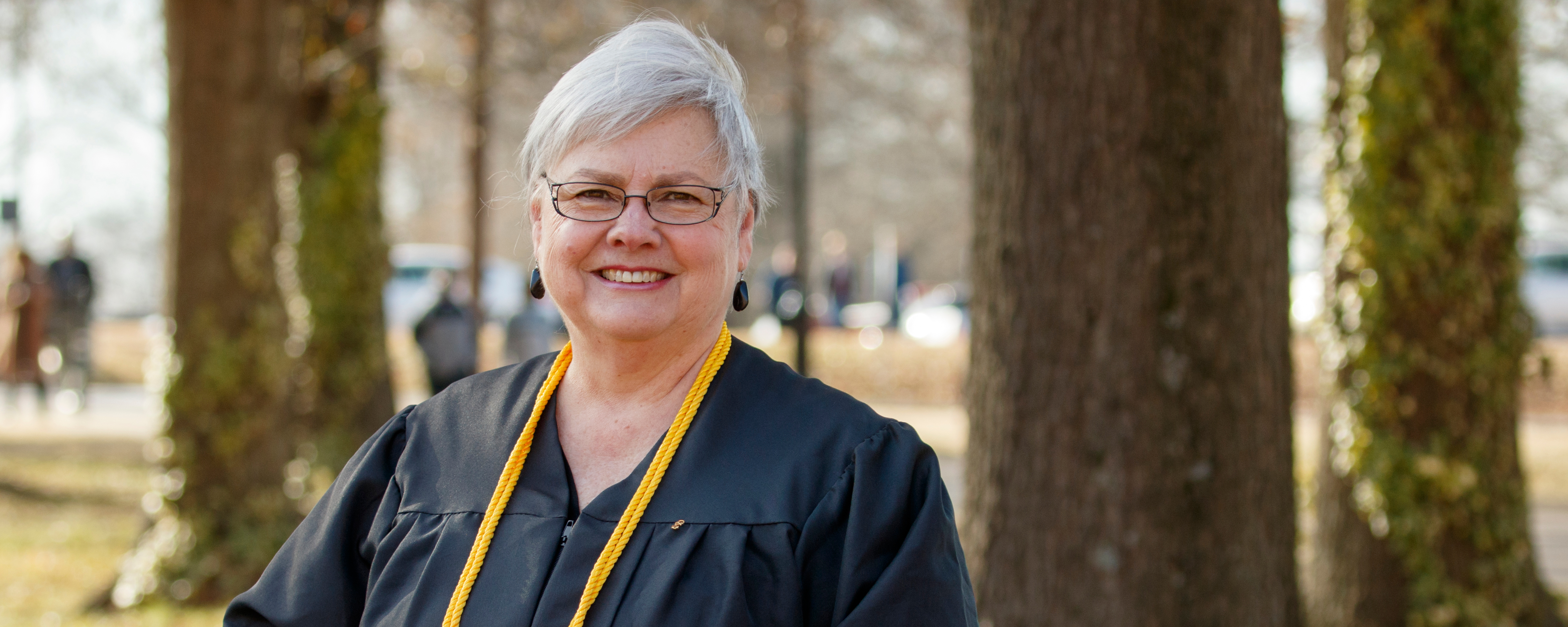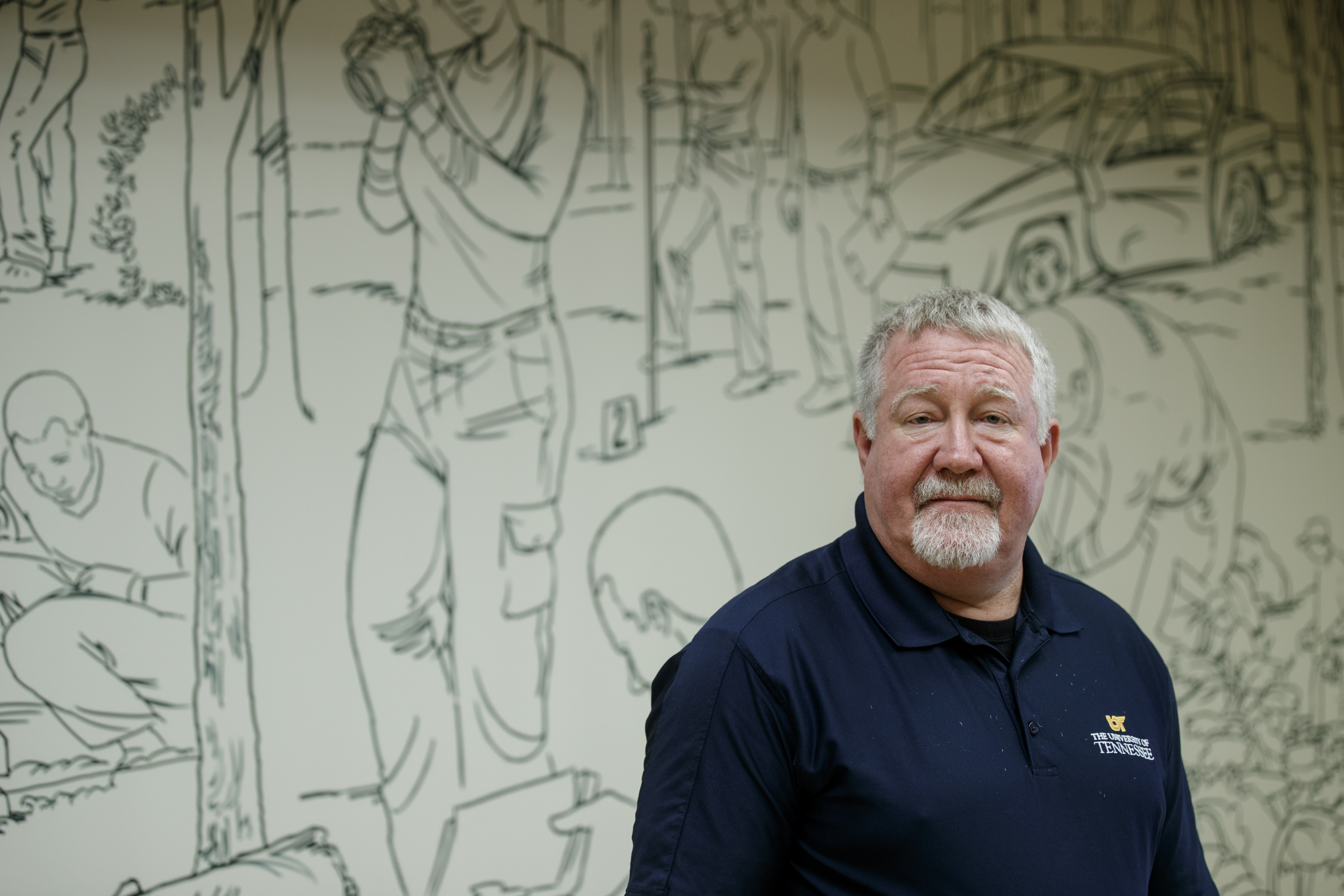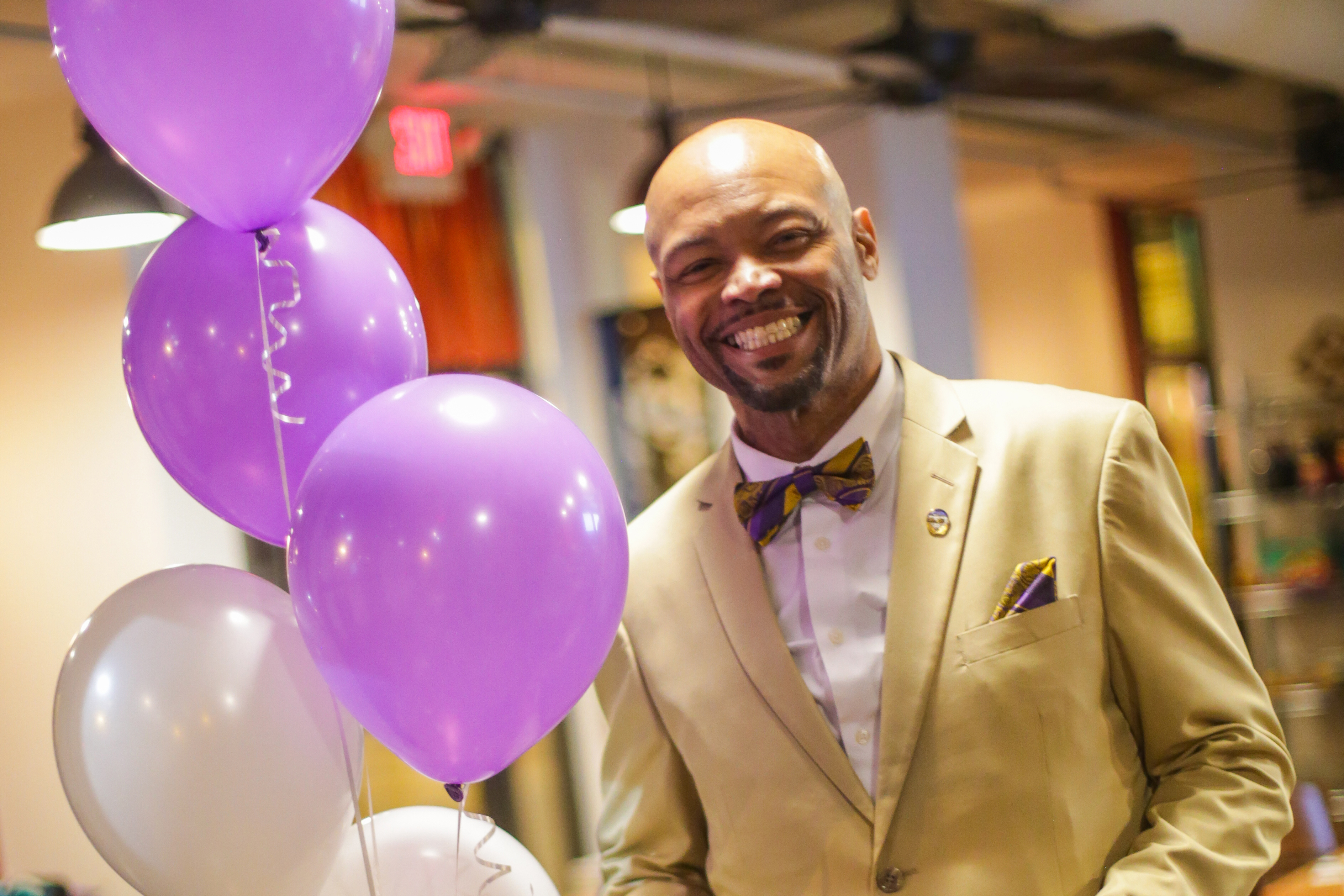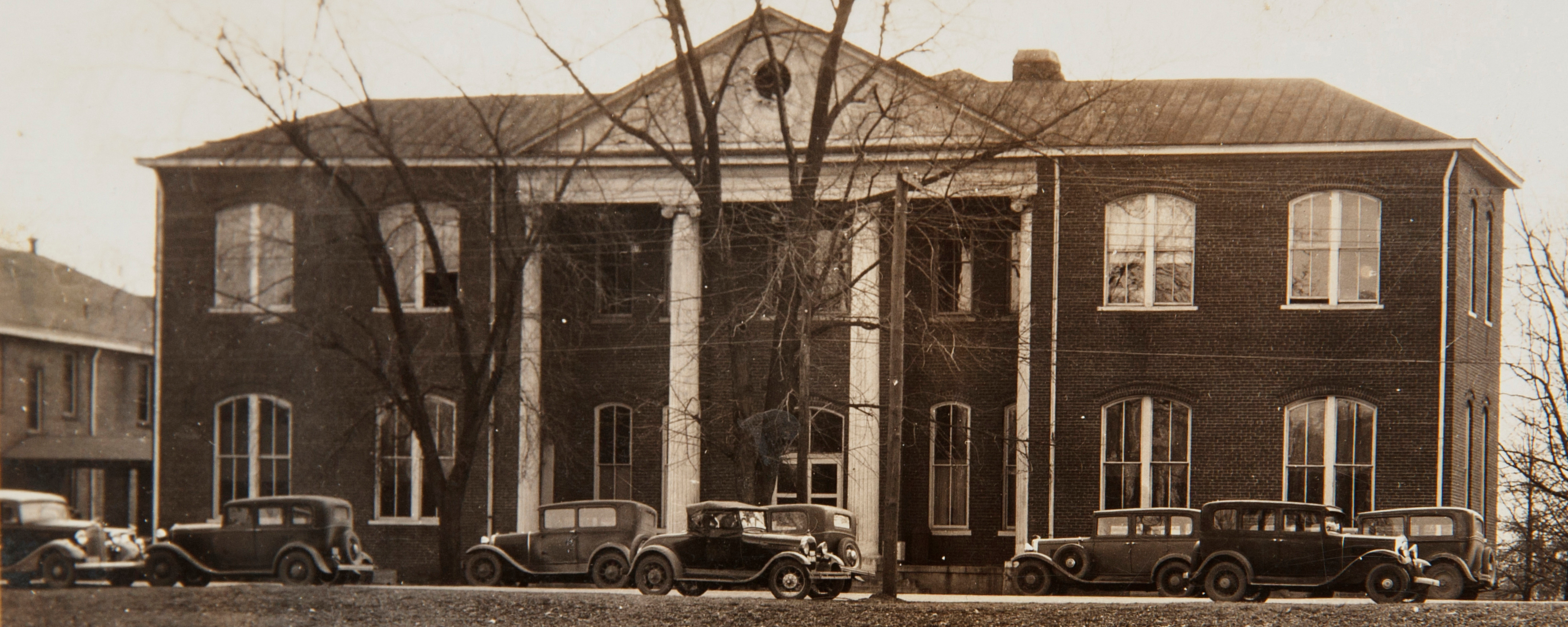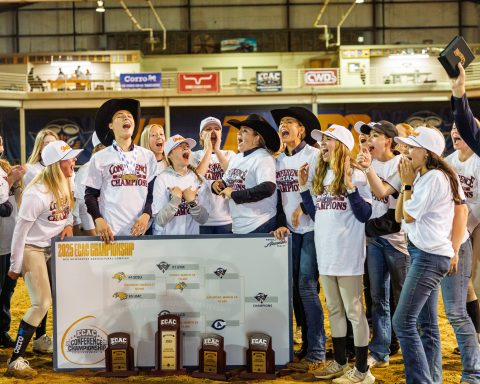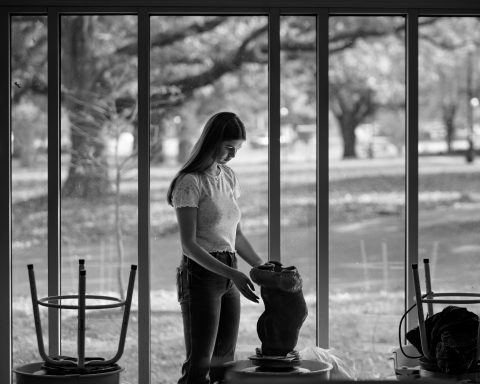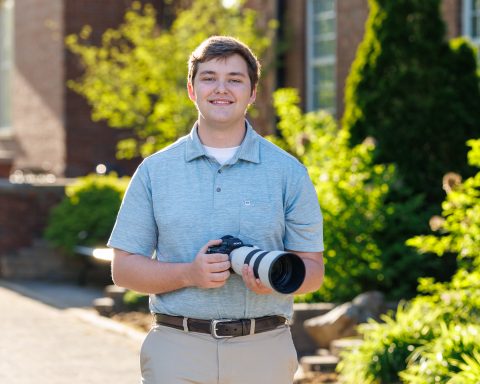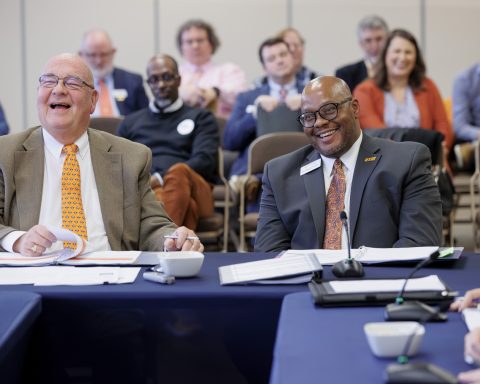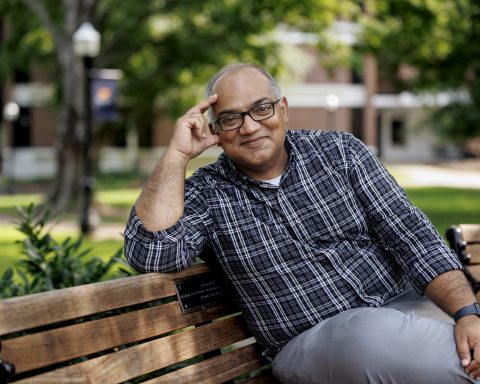From missionary field to classroom
Story by Bud Grimes
Checking items off life’s bucket list takes time. For Gaye Coleman (‘17), graduating magna cum laude from UT Martin in December followed 25 years with her husband and family as missionaries for the International Mission Board of the Southern Baptist Convention. Her focus on gerontology in the Department of Family and Consumer Sciences places her among the first university students to earn a degree within the concentration. Maybe more significant than her academic accomplishments is her wish to continue serving others, this time by helping improve the quality of life for older members of society.
Gaye graduated in 1975 from McKenzie High School in Carroll County, and she initialy studied to become an elementary education teacher. She attended Bethel College for two years and then married her high school sweetheart, Dale Coleman. He worked in construction, they had two children, and she became a stay-at-home mother.
“Ten years passed, and we decided that God was calling us into foreign missions, and so we spent the next 25 years in West Africa,” she said. However, extensive preparation was necessary before the couple’s first mission assignment. Gaye studied nutrition for a year at UT Martin where her husband had returned to study agriculture and earn his degree in 1987. Both acquired valuable knowledge that would benefit their mission work.
The family’s preparation continued with a move to Louisiana where Dale worked with the U.S. Department of Agriculture, and both studied at the New Orleans Baptist Theological Seminary. They then spent 15 months in France where their children, Jacob and Rebekah, attended French public schools. The Colemans were engaged in intense language study to further prepare them for their first assignment in French-speaking West Africa. Zaire was their first mission assignment, but a coup occurred the week they were scheduled to arrive in the country, and the family eventually served in rural areas of Togo and Senegal, instead.
“We used our French for official purposes, but we also learned four or five tribal languages while we were there,” she said. “We were always in rural settings using community development as a bridge to share the Gospel. I taught women’s health lessons, family studies, Bible studies with the women. … I also home-schooled our children while we were overseas until they were in high school.” Dale filled his role on the mission team by working with the men on agriculture-development projects, starting churches and training pastors.
The Colemans experienced and observed many things during their mission work, one of which was how older people were treated. “I just saw how the family unit there took care of their older people and how they respect age,” she said. “It really made an impact on me, and I sort of think we’ve moved away from that in our society here. … I’m a big advocate of intergenerational programs; any time we can bring different ages together, we all benefit. We have a lot to gain and learn from one other.”
Love for family and respect for the older generation brought the Colemans back to McKenzie in 2015 to help care for two sets of aging parents. These circumstances, combined with what she had observed in other cultures, led Coleman to enter college in 2016 and study gerontology in pursuit of her degree.
“It was just on my bucket list. I never finished that goal, and it was one of the things I wanted to do,” she said of her decision to return to college. Gaye would also become the final member of her family to earn a college degree: Jacob (’05) earned a criminal justice degree, and Rebekah earned a degree in creative writing, journalism and English in 2001 from Union University in Jackson.
Gaye described the gerontology concentration as giving students broad exposure to the field. “When you say ‘gerontology,’ people respond, ‘Oh you want to work in a nursing home.’ But there are so many more things you can do with a degree in gerontology than work in a nursing home, because that field applies to so many areas,” she said.
Gaye said she found the experience of returning to college more stimulating than challenging. “Every day we just learned something new about how the brain works, how the body ages, and we don’t just come to a point when we decide we’re aging,” she said. “We started aging the day we were born, and our trajectory of how we age depends on the decisions we make when we’re young. So it’s not just something we’re going to deal with as we get older. We’re dealing with aging every day.”
Although younger students sometimes mistook Gaye for a faculty member, she felt accepted in her classes and valued the interactions. “I just enjoyed every day being stimulated by new ideas, by interaction with students and faculty,” she said. “The faculty here at UTM are fabulous. They really are interested personally in each student, and I enjoy just being able to think about a new topic, learn about a new idea and then go to the library and research it.” She recalled one particular class taught by Dr. Keith Dooley, assistant professor of child and family studies and gerontology. The course explored death, dying and bereavement, which allowed class members to work through and discuss related issues before having to face them personally and help others as they face death.
With her college degree now in hand, Gaye will decide which bucket-list item to pursue next as she and her husband watch after their parents and he runs the family farm. She said that she and her husband talk often about how thankful they are for the U.S. and for the many blessings they enjoy. “We don’t take anything for granted,” she said. “We know how the other part of the world lives.” On the other hand, the Colemans were taught some life lessons in other countries that have stayed with them, such as the concept of hospitality.
“We would go to a village among people who had nothing but yet offered us everything, you know, and made us feel totally welcome and … would have been pleased if we had stayed days and days with them,” she said. “We learned some valuable lessons from living 25 years in a culture that was so very different from ours.” One particular philosophy might even have given her an edge over younger college classmates.
“There’s an African proverb that says, ‘You can’t bring anything into your hut that you don’t have a hook to hang it on,’” she said. The proverb had practical application because anything left lying on the floor could conceal scorpions and snakes, “But, also, you have to have something that makes that relevant to you” said Gaye. “I had so many hooks to hang every piece of wisdom, every piece of information that was shared in class. … I had a life experience that made that relevant to me.”
Gaye Coleman is a lifelong learner with a passion for service and a heart for those growing older in a society that values youth. Whatever she does next will make a difference because her hut contains plenty of hooks for those next bucket-list items.

